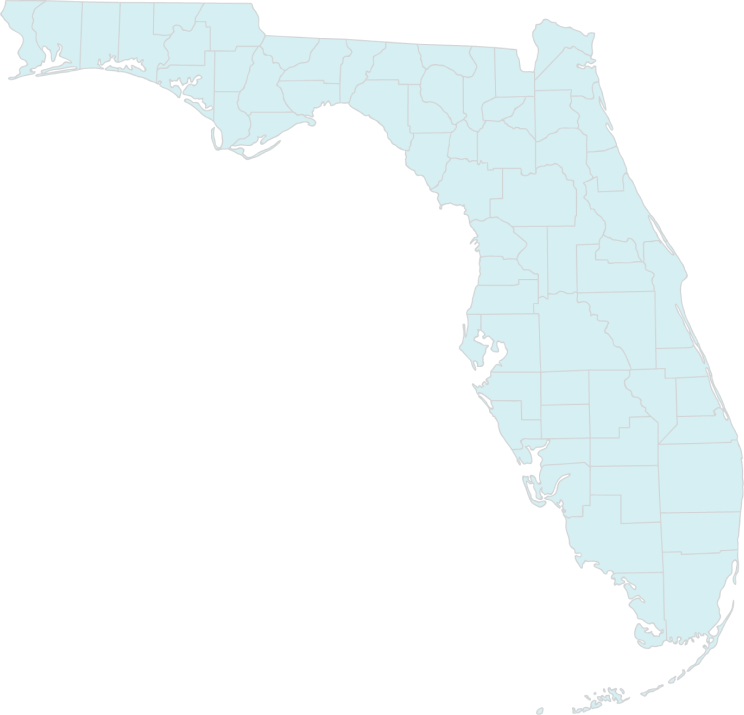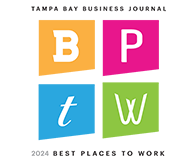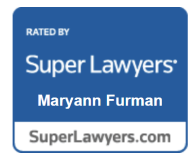
Navigating Claims, Coverage, and Liability in Florida Construction Accidents
Construction sites are uniquely hazardous. On a jobsite in Florida, you may face heavy equipment, elevated scaffolding, suspended loads, power tools, and multiple trades operating in tight proximity. If you’re injured on a Florida construction site, the consequences might include fractures, spinal damage, traumatic brain injury, burns, or internal trauma.
But often there’s more than meets the eye: you may face both a work injury claim (via workers’ compensation) and a personal injury (third-party) claim against negligent parties. Understanding how to navigate both systems, how insurers coordinate, and where liability lies is essential to protecting your full recovery.
At The Nurse Lawyer, P.A., we combine legal acumen and medical insight. Maryann Furman is both a Registered Nurse and Board-Certified Civil Trial Lawyer, so you get representation that understands your injury, treatment, and rights. Our Florida construction accident clients know we deliver clear guidance, strategic planning, and skilled advocacy.
In this post, you’ll learn:
- What distinguishes work injury (workers’ comp) from personal injury (tort) claims
- When a Florida construction site accident triggers both types of claims
- How coverage, liability, and insurers intersect
- Strategic issues, pitfalls, and best practices in overlapping claims
- How we help you at every stage of the process
Work Injury vs. Personal Injury: Definitions & Key Distinctions
Work Injury (Workers’ Compensation)
A work injury is one that arises in the course and scope of your employment. In Florida, employers generally must carry workers’ compensation insurance under Chapter 440 of the state’s Statutes (see § 440.02 et seq.).
That insurance typically provides:
- Payment for necessary medical treatment
- Temporary disability benefits (partial or total)
- Permanent disability compensation if your impairment remains
- Death benefits if the construction accident is fatal
Florida workers’ compensation system is largely no-fault: you don’t generally need to prove that your employer was negligent to receive benefits. In exchange, you usually give up the right to sue your employer for negligence, unless an exception under Florida statute applies.
Under Florida law (see § 440.09 Fla. Stat.), your workers’ compensation benefits may be reduced or denied if your injury was caused primarily by your intoxication or non-prescribed drugs, or if you knowingly refuse to use a required safety appliance or follow a mandated safety rule.
On a construction site, this could include failing to use required fall protection, ignoring scaffold-safety rules or working while impaired.
Personal Injury (Third-Party / Tort Claim)
A personal injury claim is a separate lawsuit you file against a negligent party whose wrongful act caused your injury. In a construction accident in Florida, a third party might be:
- A subcontractor or specialty trade
- The construction equipment manufacturer or supplier for defective products
- The general contractor or construction manager
- The property owner, architect, or engineer
- A motorist or delivery driver who collided with your worksite
If you succeed in a Florida personal injury claim, you may recover broader damages, including:
- Pain and suffering
- Emotional distress
- Loss of future earnings (beyond what comp covers)
- Loss of consortium
- In rare cases, punitive damages (depending on jurisdiction)
Because you can pursue a third-party claim alongside your workers’ compensation claim when a negligent party outside your employer is involved, it supplements (but does not replace) your workers’ comp recovery.
Why Both Claims Often Coexist in Construction Accidents
Because these dual claims commonly arise in Florida construction accidents, it becomes crucial to manage both paths in tandem so you don’t miss out on full compensation.
When a Construction Accident Triggers Both Claims
Here are some illustrative scenarios that often occur on Florida jobsites:
- Scenario 1: A crane fails due to a design or manufacturing defect, dropping materials onto a worker. The employee pursues workers’ comp for treatment and wage loss, and also sue the crane manufacturer or rental company for their Florida crane accident.
- Scenario 2: Scaffolding collapses due to being negligently constructed or inspected. They get comp benefits and sue the subcontractor or general contractor responsible for the Florida scaffolding collapse.
- Scenario 3: A delivery truck’s negligent driver strikes a worker entering the jobsite. They collect comp benefits and sue the trucking company for their personal injuries.
- Scenario 4: A safety harness fails mid-use, causing a fall. They use comp for medical care and bring a product liability claim against the harness manufacturer or seller.
In each of these real-world inspired illustrative examples, your workers’ comp claim forms the base recovery; the third-party tort claim provides the opportunity for compensation that the comp claim alone will not cover.
Exclusive Remedy Rule & Exceptions
Under Florida law, the workers’ compensation scheme is generally considered the “exclusive remedy” for an employee’s injury against an employer (See § 440.11 Fla. Stat.). This means you ordinarily cannot sue your employer for negligence.
However, exceptions could apply:
- The employer fails to carry required workers’ compensation insurance
- The employer commits intentional misconduct or gross negligence
- If the responsible party is not your employer (i.e., a third party)
That being said, while you typically can’t sue your employer, you can pursue negligent parties outside your employment relationship – and that’s central to any overlapping construction injury claim.
How Coverage, Liability, & Insurers Interact
When a construction accident triggers both workers’ comp and a third-party tort claim, the interaction between insurers, subrogation rights, and legal strategy becomes critical.
Subrogation, Offsets, & Reimbursement
One major risk: your workers’ compensation insurer may seek reimbursement (subrogation) from your recovery against a third-party. Under Florida Statute § 440.39, the carrier has a lien or subrogation right for benefits paid.
If you recover via a personal injury lawsuit, your net payout may be reduced by what the comp insurer recoups. At The Nurse Lawyer, P.A., we analyze how Florida addresses “make whole” or “common fund” doctrines and structure settlements accordingly.
Coordination Between Insurers
Workers’ compensation benefits often begin immediately while your tort claim may take months or years. That means it’s critical to coordinate:
- Prompt exchange of medical records
- Proper insurer notices
- Avoidance of statements or documents that undermine your third-party claim
- Tracking primary vs secondary insurer layers
When you sign a release or give a recorded statement too early, you may weaken your tort claim.
Proof of Liability, Causation, & Expert Evidence
To succeed in a tort claim, you must show:
- Duty of care by the defendant
- Breach of that duty
- Causation: that the breach caused your injury
- Damages
Construction site cases often require expert testimony in structural engineering, safety standards, metallurgy, accident reconstruction, OSHA compliance, and biomechanics. With a dual background in nursing and trial law, our team offers a rare combination of medical insight and legal strategy.
Insurance Policy Nuances & Layers
Construction accidents typically involve multiple coverages:
- Workers’ compensation insurance
- General liability policies held by contractors
- Subcontractor liability insurance
- Product liability insurance (for defective tools/components)
- Umbrella or excess liability policies
We examine:
- Which insurer is primary vs secondary
- Policy exclusions (e.g., “your work” exclusions; maintenance carve-outs)
- Whether waiver of subrogation clauses apply
- Whether proper insurer notice was given
Early notice to all insurers and preservation of job-site evidence are vital to avoid denials or gaps in coverage.
Statutes of Limitations & Claim Deadlines in Florida
Because you’re dealing with both work-injury and tort claims, you must adhere to two sets of deadlines:
- For workers’ compensation claims in Florida, you generally must report your injury to your employer within 30 days of the date of or initial manifestation of the injury, or you risk losing benefits.
- For most tort (personal injury) claims, Florida’s general negligence statute of limitations is two years, with limited exceptions.
Missing a deadline in either regime can entirely bar your recovery. At The Nurse Lawyer, P.A., we act immediately so you don’t have to navigate these complexities alone.
Strategy, Pitfalls, & Best Practices in Overlapping Claims
When workers’ compensation and third-party tort claims intersect, the right strategy makes all the difference. Here’s how we help you avoid common pitfalls and maximize outcomes:
Avoid Inadvertent Waivers
Sometimes injured workers are asked to sign releases or documents that inadvertently include language waiving third-party rights. We review every document to protect your full rights.
Controlled Communication & Statements
Insurance adjusters or comp carriers may seek statements from you. Any inconsistency can later be used to undermine your tort claim. We help you craft safe responses.
Preserve Evidence Immediately
Construction sites evolve fast: scaffolding is dismantled, debris removed, equipment moved. We act swiftly to:
- Send preservation letters
- Secure photos/videos
- Preserve footage
- Interview witnesses
- Engage safety/engineering experts
Medical Documentation with Causal Linkage
Because we handle both systems, we ensure your medical records, imaging, and reports clearly link your injury to the accident. That pushes back against claims of pre-existing conditions.
Timing & Settlement Strategy
With dual claims, timing matters. We often wait until your treatment reaches Maximum Medical Improvement (MMI), negotiate the workers’ comp subrogation lien, and ensure one settlement doesn’t undermine the other.
Managing Multiple Defendants
Construction accidents frequently involve general contractors, subcontractors, equipment manufacturers, property owners, architects, and engineers. We manage cross-claims, joint liability, and settlement strategy to maximize your recovery.
How We Assist Injured Construction Workers at The Nurse Lawyer, P.A.
With Maryann Furman’s dual credentials as a Registered Nurse and Board-Certified Civil Trial Lawyer, our team is uniquely positioned to handle both the medical and legal complexities of your case. We coordinate workers’ compensation and third-party claims when both systems apply, so you don’t have to navigate the overlap alone.
From day one we act to preserve evidence, solicit expert input, and protect your rights. You never feel like just a file. You’ll have direct access to Maryann, clear communication about trade-offs, and representation that prepares each case as if it will go to trial. If you were injured on a Florida jobsite and face overlapping systems, we’re ready to guide you toward full recovery.
Ready to Take the Next Step?
If you or a loved one was injured on a construction site in Florida, whether in Pinellas County, Hillsborough County, or elsewhere in the state, and your injury implicates both a workers’ compensation claim and a third-party personal injury claim, we are ready to fight for you. We will:
- Evaluate your rights under workers’ compensation
- Identify and pursue viable third-party claims
- Manage multiple insurers, subrogation and complex coverage layers
- Prevent inadvertent waivers and procedural missteps
- Maximize your net recovery
We work on contingency, you pay nothing unless we win. Call our Palm Harbor office today or complete our online contact form for a free, no-obligation consultation. Maryann personally provides her cell phone number to each client, so you always have direct access.
Let us bring medical insight and legal strength to your case. You don’t have to face insurance companies alone.
Disclaimer: The articles on this blog are for informative purposes only and are no substitute for legal advice or an attorney-client relationship. If you are seeking legal advice, please contact our law firm directly.




